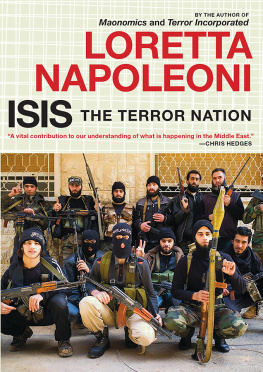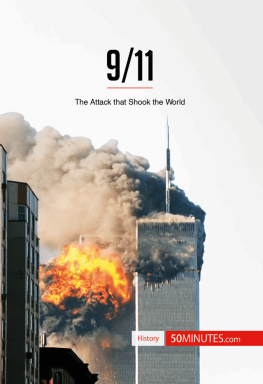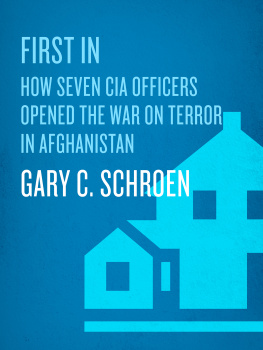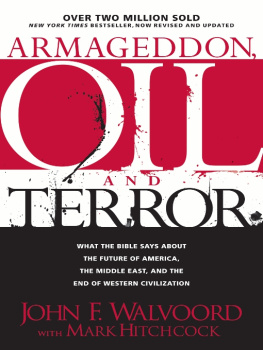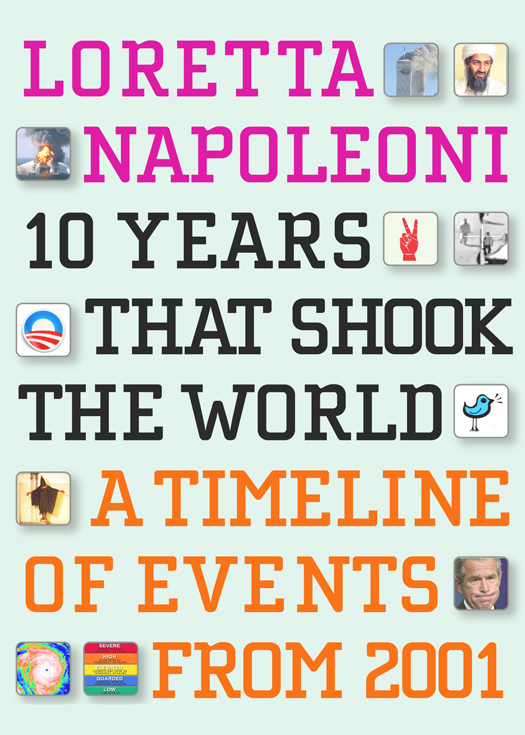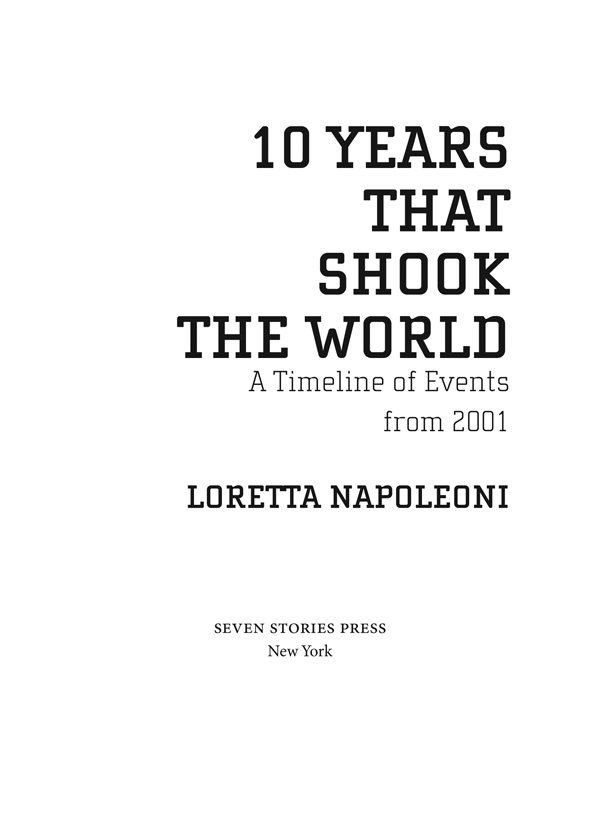Copyright 2011 by Loretta Napoleoni
A Seven Stories Press First Edition
An Open Mic Book
All rights reserved. No part of this book may be reproduced, stored in a retrieval system, or transmitted in any form, by any means, including mechanical, electronic, photocopying, recording, or otherwise, without the prior written permission of the publisher.
Seven Stories Press,
140 Watts Street
New York, NY 10013
www.sevenstories.com
College professors may order examination copies of Seven Stories Press titles for a free six-month trial period. To order, visit www.sevenstories.com/textbook or send a fax on school letterhead to (212) 226-1411.
eISBN: 978-1-60980-412-1
v4.2
Table of Contents
Preface
This booklet was originally intended for young people, those who were children or adolescents on September 11, 2001, and grew by research and writing to be a book for everybody. The aim is to show how the decade that began in 2001 has profoundly changed the world, setting in motion what Steve Jobs calls digital lifestyle.
The attacks of September 11, 2001, are considered to have been the main event, but the changes of that decade go far beyond the menace of terrorism and the War on Terror. The technological revolution triggered by Apple, the wide use of the web, the advent of social media, and stem cell research are just some of the innovations that brought about a new Enlightenment. The War on Terror and its strong rhetoric hid these phenomena. The purpose of this booklet is to show the true patterns of changethose innovations that will influence coming decades.
While politicians were chasing the ghosts of al-Qaeda, the economy was spinning out of control, leading us to the 2008 financial crisis and the ensuing recession. Emerging markets, where the technological revolution brought modernity at a very fast pace, were the true winners of the decade. In the space of 10 years, the BRIC countries (Brazil, Russia, India, and China) became major players in the world economy, the euro reached the brink of collapse, and United States economic predominance continued its decline.
The demographic explosion is eroding the environment and putting pressure on natural resources. We cannot live as we have done until today. This is the decade in which these problems, and our responses to them, are finally pushing us towards real political, economic, and environmental change.
A youth revolution empowered by social media used the web to reject obsolete values, demanding a pivotal role in a society where young people were only consumers. From the pop economy to the Arab revolt, the world is beginning a new chapter in modern history. Fifty years from now, people will look at this decade as a major milestone in human progress.
This booklet is written in short bursts of information, similar to 140-character tweets. This is the modern narrative, the one used by many young people, and it reflects the rapid pace of change and communication in this modern world. More than a timeline, 10 Years That Shook the World tells the tale of an extraordinary decade. Within each year, events are presented not in a strict chronology but more as we might remember them, often with the most significant events recalled first. Thus the main topicspolitics, economics, people, technology, and the environmentcross over constantly, showing how they are all interlinked and how globalization poses a phenomenal challenge to our world.
LN, August 2011
Acknowledgments
This book never would have happened without Bjrn Axelsson and Matteo Ballero, my research assistants. I owe this book to them.
To them goes not only my gratitude but also my admiration for piecing together such a unique story of a decade nobody will ever forget.
Thank you also to my stepson Andrew Gerson for editing this book, and to my sons Julian and Alexander for reading it and suggesting additional tweets.
About the Author
Loretta Napoleoni is the author of the bestselling book Rogue Economics: Capitalisms New Reality (a Publishers Weekly Best Book 2008) and Terror Incorporated: Tracing the Money Behind Global Terrorism, both translated into fifteen languages. One of the worlds leading experts on money laundering and terror financing, Napoleoni has worked as a correspondent and columnist for La Stampa, La Repubblica, El Pas, and Le Monde, and she has presented on the economics of terrorism for Google UK and TEDTalks. She teaches economics at the Judge Business School in Cambridge.
2001 at a Glance
World gross domestic product (GDP): $32.009tn
US: $10.234tn
Japan: $4.095tn
Germany: $1.891tn
World population: 6.162bn
Natural disasters:
12,000 die in an earthquake in India
800 die in an earthquake in El Salvador
US federal debt: $5.807tn
US unemployment: 4.74%
Average oil price: $23 per barrel
Annual food price index (20022004=100): 93.3
World military spending: $772bn
US: $281.4bn
Russia: $43.9bn
France: $40.4bn
US share of total military spending: 36.5%
Time magazine person of the year: Rudolph Giuliani
Nobel Peace Prize winners: United Nations and Kofi Annan for their work for a better organized and more peaceful world.
Introduction
The deadliest terrorist attack on US soil to date changes the world at the outset of the new millennium. From this day forward, the global movement against exploitative globalization that had previously dominated the world agenda finds itself taking a backseat to the war on terror.
US President George W. Bush had campaigned on an isolationist platform in foreign policy, saying, If we dont stop extending our troops all around the world in nation-building missions, then were going to have a serious problem coming down the road. And Im going to prevent that.
The newly inaugurated president now finds himself at the center of world politics, with every nation watching for his reaction.
In the midst of the political turmoil, Apple launches the iPod and iTunes; the music world will never be the same.
2001
Three months after the execution of Timothy McVeigh for the bombing of the Oklahoma City federal building, where 168 people died, comes 9/11.
19 al-Qaeda hijackers fly two commercial flights into the World Trade Center and another into the Pentagon.
A fourth plane, United Airlines 93, heading for the White House, crashes near Pittsburgh, PA, possibly because passengers overwhelm the terrorists.
A bewildered international media broadcasts the New York attack live; the world watches in horror as burning people jump to their deaths from the Twin Towers.
New York Mayor Rudy Giuliani gets trapped by smoke and debris for 20 minutes in a building near the World Trade Center.
Giuliani closes the New York Stock Exchange, which will remain shut for four days, and President George W. Bush tells Americans to go home, stay home, and wait.
For a few days life in the US comes to a halt. The impact is devastating for the already weak US economy.
In March, financial markets had already fully grasped the consequences of the dot-com crash, described by the


